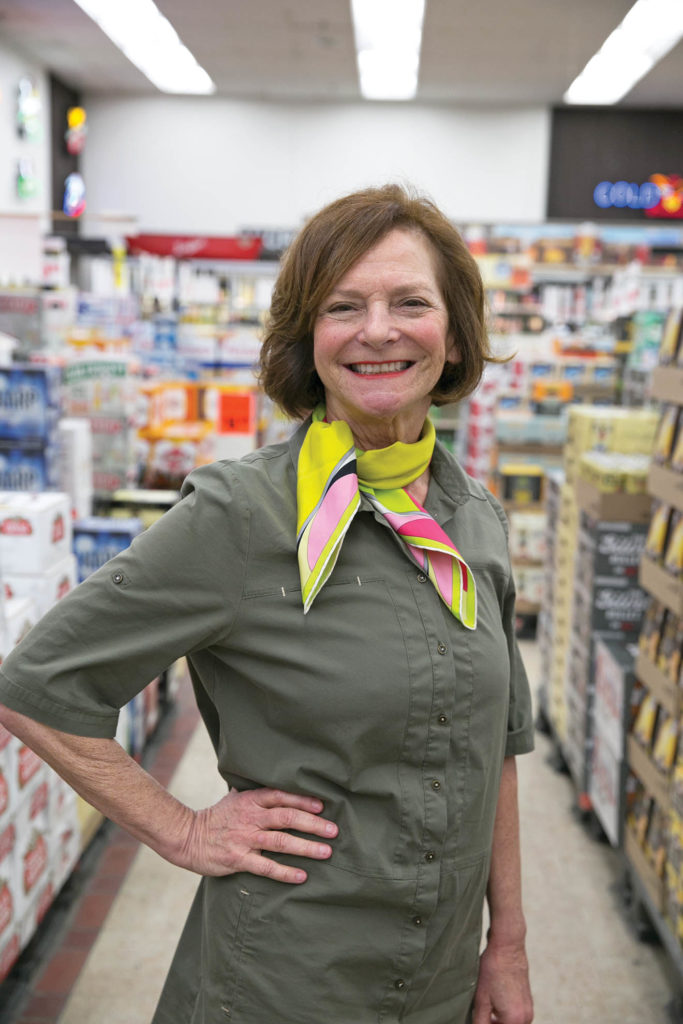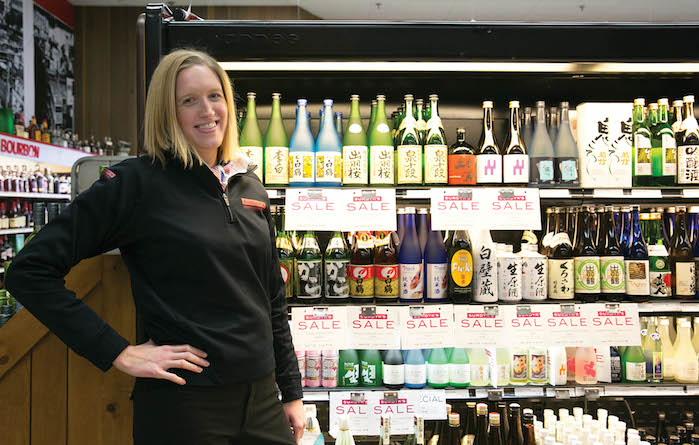Independent retailers in the Twin Cities of Minneapolis and St. Paul, Minnesota, are absorbing a changing landscape that includes the entry of a big-box competitor and a new law legalizing Sunday liquor sales.
The late-February vote undoes an 1858 Prohibition-era law against selling liquor in the state on Sundays. It will likely take effect in July of this year, a Minneapolis TV station reported in March. A grassroots pro-Sunday sales website claims Minnesota could generate $10.8 million to $15.1 million in new tax revenues as a result of the change, but retailers are mixed on whether it will be a blessing or a curse for small and midsize stores.
Pros and Cons of Sunday Sales
As in many industries, Sunday’s hours of operation for area liquor stores will be more limited than weekdays, and lawmakers have yet to announce specifics as of press time. But Ted Farrell, president of Haskell’s wine store (with 12 Minnesota locations), says he’s already not happy about the law’s passage.

Farrell says his industry contacts in Colorado—where a no-Sundays law changed in 2008—have told him that the novelty of buying on Sunday wears off quickly. “You do the same amount of business dissipated over more time,” he explains. “It will hurt the small mom-and-pop stores to run an extra day.”
Nancy Rosenberg, owner of five Big Top Liquor stores in the Twin Cities—a family-owned business in the community since 1981— expects to do additional business in at least her St. Paul location. “We welcome this with open arms, hoping to successfully service our customers,” she says. “We will be adjusting schedules to cover these additional hours and plan to add extra part-time shifts.”
Big Box Store Upends Market
Adding yet another competitor to a highly saturated market, Maryland-based Total Wine & More began opening stores in the Twin Cities area in 2014 with locations in Roseville, Burnsville, Woodbury and Bloomington. With the knowledge that the chain sells many of its goods near cost, local retailers lamented their inability to succeed on such thin margins.
“We’re never going to beat these stores at price on a lot of items,” Steve Grausam, director of liquor operations for Edina’s municipal stores, told the Star-Tribune at the time. “We started rebranding our stores to emphasize that profits get poured back into the community.”
Some councils in the Twin Cities area are using the power of the pen to protect their locally owned liquor stores. The Minneapolis suburb of Minnetonka in September 2016 rejected a liquor-license application by Total Wine, saying the area had enough liquor stores. The year prior, the city turned down Target’s application to sell liquor at an area SuperTarget store. It was the first time Target had been denied a license since it added liquor and wine to its Minnesota stores in 2014.
“The pie is only so big,” Farrell says. “[Total Wine has] definitely taken market share from everybody. They are a big player and the wine world, and it forces you to become a better retailer.”
Chuck Kanski, proprietor at Solo Vino Bottle Shop in St. Paul, says his store will remain closed Sundays despite the law allowing sales that day, “but we are happy to have the option.” The big winners, he says, will be larger stores and grocers. Solo Vino has been in business for almost 16 years, and Kanski says its ethos is about guest relationships and staff knowledge, and that its sales have held steady to small year-over-year percentage increases since Total Wine came on the scene.
In contrast, Rosenberg says her 40-year-old family business has seen three of its locations affected by lost sales since Total Wine’s entrance. She says increased competition with this and other large chains continues to be her biggest challenge.
“It has impacted us, but it makes us sharper and more focused,” she says, adding that the family’s third generation is now joining its ranks. She’s hopeful the new, younger leadership can craft innovative, tech-savvy ways to engage the community. “We have seen some of our customers coming back,” she says, because Big Top provides “a compelling shopping experience. If we have fair pricing, good employee engagement and fun promotions, there is a place for us.”

Renewed Marketing Push
In part to maintain its standing among the new big box competition, Haskell’s—a presence in the Twin Cities since 1934—recently changed its Wine Society program into a loyalty program. “It really engages you directly to your customer,” Farrell says. “We use a lot more e-marketing now. Before some of our advertising in general was just a shotgun blast in the air.”
Since 1934, Surdyk’s Liquor and Cheese Shop has been a local, family-owned store and over the past 18 months has begun experimenting with offering on-demand delivery, says Melissa Surdyk (pictured atop). Surdyk’s works with a couple outside companies and phone apps like Drizly, MiniBar, Amazon and BiteSquad. “We hope it opens up the door to people who have never shopped with us,” she says of its 10,000-square-foot space in northeast Minneapolis.

At Surdyk’s, a large influx of local products in the past year has paved the way for more in-store events with pairings, cocktail ideas and local products. The company also brings in distillers and brewers to sample products, Surdyk says. The store has six wine consultants on staff who are experts in its offerings, which she says also sets it apart.
“We know a lot of our customers by name,” she adds. “It’s an experience to come and shop at Surdyk’s, but it doesn’t come easy—ever. You always have to try and make things new. The market is always changing, especially within the last five or ten years.”
Rosenberg says Big Top is rethinking the look and feel of its stores and has instituted a new loyalty program as well—after five visits, customers get 5% off. She’s also implemented text offers in response to the increased competition. Big Top uses social media to promote other local retailers and events in its community, often posting on Facebook about restaurant openings and local football games. “We are proud of what’s going on,” she says.
Competition is vast in the Twin Cities, but it makes everyone do business that much better, Farrell says. “It forces you to tie up your shoes and do a better job, and focus on that customer who does come through your doors, so they have the most positive experience possible.”
The Twin Cities Love Rosé and Craft Beer
Rosenberg says shopping local remains a strong preference in the Twin Cities, and that cellar beers and ciders, and Bourbon-aged and barrel-aged wine, are doing particularly well. “New is the consumer’s favorite flavor,” she says. Flavored vodka is still strong, too, she adds, as is rosé.
The rosé trend does not stop at Big Top. “Especially in the last year, we’ve been rocking and rolling in rosés,” Farrell says, “even in Minnesota when all the lakes are frozen. People are not afraid of pink anymore, especially if you put a heavy chill on it.”
Farrell says Haskell’s has always carried several rosés, “but you’re seeing everybody do it now, and they’re becoming less seasonal,” he adds. Further, consumers are migrating away from pinot grigios and going into New Zealand sauvignon blancs, he says.
“You have a consumer now willing to try new things and explore the worlds of wine,” Farrell says. “People are even trying Mateus again.” Mateus is a medium-sweet frizzante rosé originally produced in Portugal after WWII.
Kanski says his shop is having its ninth annual Rosé Tent Tasting in late May. “We have seen this explosion in rosé consumption over the last decade, and I believe it will only become stronger,” he says. At the peak of last year’s season, Solo Vino had more than 165 rosé selections and carries some year-round. Last month, he sold over 10 cases of rosé “at a time when most retailers have no rosé section at all,” he says. He also predicts an influx of wines from eastern Europe, including Slovenia, Georgia, Hungary and Romania.

In Minneapolis/St. Paul, as in so many other cities, craft beer has also exploded over the past decade, with consumers’ tastes and interests keeping pace with the rapid increase in offerings. “I work mostly with the beer department, and in the past two years, not a week has gone by where we don’t have at least one new item,” Surdyk says.
She adds that new breweries and distilleries are always popping up—and making great products—in the Minneapolis area. “We connect with them frequently and grow together,” she says. “As a whole, the taproom scene is somewhat of an experience, then customers come here to buy beer to take home. Sure, someone could just go there to drink and then go home, but we really fit well together. There are certain releases that they’ll only have available here.”
Yes, taproom customers will sometimes “just take a growler home with them instead of coming here and buying a six pack—then maybe some wine, too. ” But Surdyk says her number-one calls are still about beer. “That’s definitely not how it used to be,” she says.
She believes craft-beer sales won’t be slowing down anytime soon. “I think there will be more and more breweries,” she says. “Everything with craft has been very successful. I predict more styles and selection. Now we just need more space so we can sell everything.”
Rosenberg says she is looking forward to the development of a soccer stadium in St. Paul that’s being built near Big Top’s Midway location. “There is huge development all over our city,” she says. “That we are able to be a part of it still is exciting and brings new opportunities.” bd
Sarah Protzman Howlett is a freelance writer and editor based in Boulder, Colo. A veteran of Condé Nast Publications in New York City, her work has appeared in O, The Oprah Magazine; Prevention; Denver’s 5280; and trade magazines across various industries.
Editor’s Note: In March, Jim Surdyk opened Surdyk’s on a Sunday for the first time, months before the state’s Sunday Sales law allowed. The store was fined $2,000 and its license was suspended for 30 days starting July 2, the day the new law officially takes effect. As of press time, Surdyk’s had not appealed the penalty, though it has the option to do so.





Wow, It’s really interesting that so many locals are willing to try new types of wine from around the world. Of course, I heard a lot about craft beer in the past few years as well. Based on the trends you have been noticing, I think these would be good things to keep an eye out for at liquor stores. I would love it if I could order a few different types of rose from around the world for my next get-together.